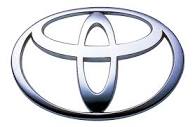Camry LE Sedan L4-2164cc 2.2L DOHC (5S-FE) MFI (2000)
_mfi/Page-1742001.png)
Lamp Control Module: Description and Operation
SYSTEM OUTLINE
With the ignition SW turned on, the current flows to TERMINAL 7 of the integration relay through GAUGE fuse.
Voltage is applied at all times to TERMINAL (C) 2 of the integration relay through the taillight relay coil side, and to
TERMINAL (C) 3 through the HEAD relay coil side (w/o daytime running light) or through the daytime running light relay (Main) (w/ daytime running
light].
1. NORMAL LIGHTING OPERATION
<Turn taillight on>
With the light control SW turned to TAIL position, a signal is input into TERMINAL (C) 1 of the integration relay Due to this signal, the current
flowing to TERMINAL (C) 2 of the relay flows to TERMINAL (C) 1 to TERMINAL 14 of the light control SW to TERMINAL 16 to GROUND
and taillight relay causes taillights to turn on.
<Turn headlight on>
With the light control SW turned to HEAD position, a signal is input into TERMINALS (C) 1 and (C) 4 of the integration relay. Due to this signal,
the current flowing to TERMINAL (C) 3 of the relay flows to TERMINAL (C) 4 to TERMINAL 13 of the light control SW to TERMINAL 16 to
GROUND in the headlight circuit, and causes taillight and HEAD relay to turn the lights on. The taillight circuit is same as above.
2. LIGHT AUTO TURN OFF OPERATION
With light on and ignition SW turned off (Input signal goes to TERMINAL 7 of the relay), when the driver's door is opened (Input signal goes to
TERMINAL 6 of the relay), the relay operates and the current is cut off which flows from TERMINAL (C) 2 of the relay to TERMINAL (C) 1 In
taillight circuit and from TERMINAL (C) 3 to TERMINAL (C) 4 in headlight circuit.
As a result, all lights are turned off automatically.
